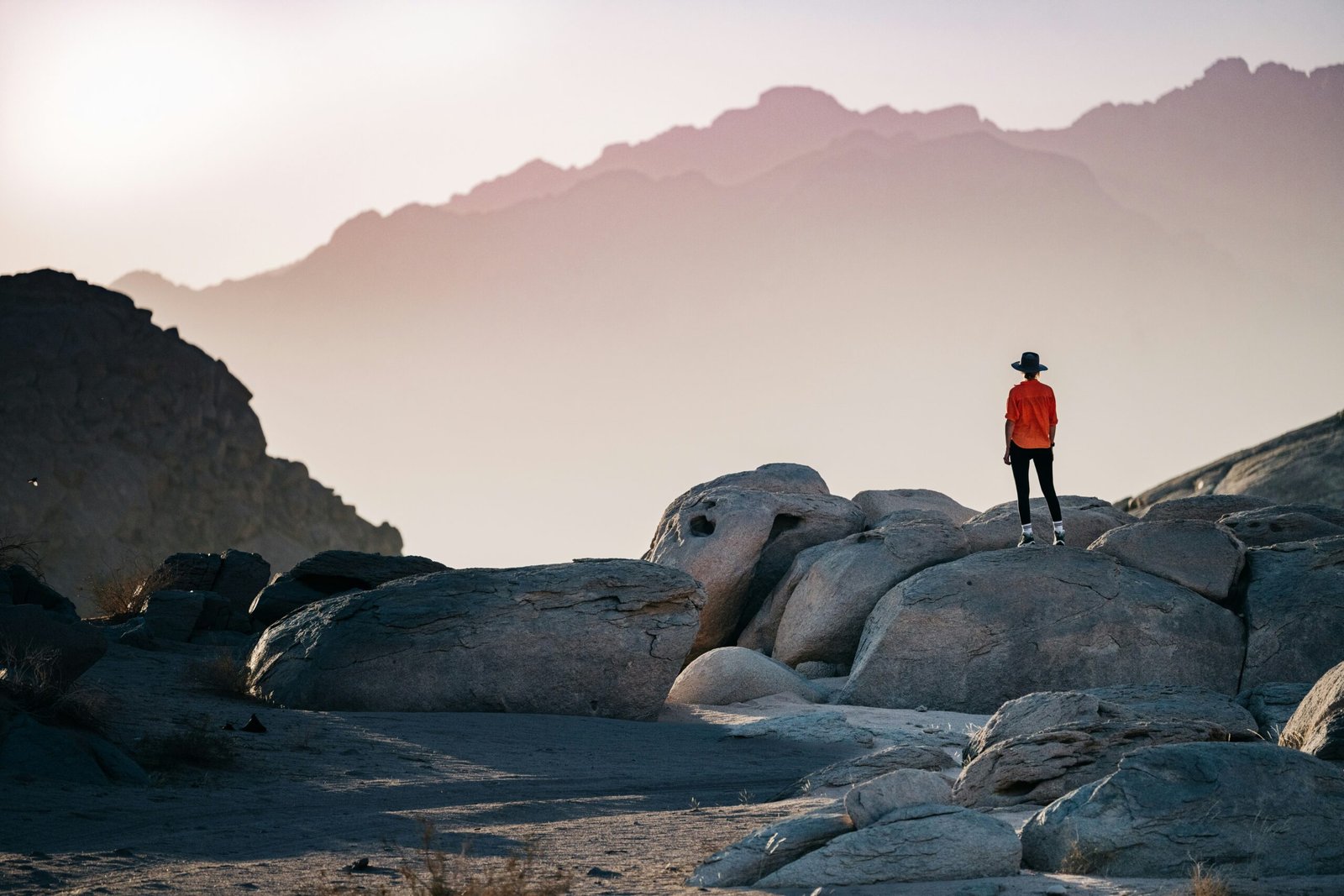
When we travel, we expose ourselves to new environments, people, and customs that we may have never encountered before. This exposure allows us to break free from our own cultural bubble and challenge our preconceived notions and biases. For example, visiting a country with a different language and customs can be initially intimidating, but as we immerse ourselves in the local culture, we begin to appreciate the beauty of diversity and realize that there is no one “right” way of doing things.
Furthermore, travel enables us to witness the immense beauty and wonders of the world. Whether it’s standing in awe of a breathtaking sunset over a pristine beach or hiking through lush rainforests, these experiences remind us of the incredible diversity and magnificence of our planet. They also instill in us a sense of responsibility to protect and preserve these natural wonders for future generations.
Another aspect of travel that contributes to personal growth is the opportunity to meet people from different walks of life. Interacting with locals and fellow travelers allows us to gain insights into different perspectives and lifestyles. We may discover that despite our differences, we share common values and aspirations. These connections foster empathy and understanding, breaking down barriers and fostering a sense of global citizenship.
Moreover, travel often pushes us out of our comfort zones and forces us to adapt to new situations. From navigating unfamiliar transportation systems to trying exotic cuisines, every aspect of travel presents us with opportunities for personal growth. Stepping outside our comfort zones not only builds resilience and self-confidence but also encourages us to embrace change and embrace new experiences.
Overall, the power of travel lies in its ability to transform us. It opens our eyes to the beauty of the world, fosters empathy and understanding, and pushes us to grow as individuals. By broadening our horizons and expanding our perspectives, travel enriches our lives and allows us to become more well-rounded and compassionate global citizens.
As we immerse ourselves in a foreign culture, we begin to realize that the customs and traditions we once considered strange or unfamiliar are simply different expressions of human creativity and ingenuity. We learn that there are countless ways to celebrate, communicate, and express oneself, each with its own unique beauty and significance. This realization challenges the notion of a universal norm and encourages us to embrace diversity.
Moreover, breaking cultural barriers through travel allows us to connect with people from different backgrounds on a deeper level. When we engage in conversations with locals, we not only learn about their history and heritage but also gain insights into their values, beliefs, and aspirations. These interactions foster empathy and create a sense of shared humanity, reminding us that despite our differences, we are all part of a global community.
Travel also provides us with the opportunity to confront our own biases and prejudices. By stepping outside of our comfort zones and immersing ourselves in unfamiliar environments, we are forced to confront our preconceived notions and challenge the stereotypes that we may have held. This process of self-reflection and growth allows us to become more aware of our own cultural biases and encourages us to approach new experiences with an open mind.
Furthermore, embracing diversity through travel has a ripple effect that extends beyond our personal lives. As we return home and share our experiences with others, we become ambassadors of cultural understanding and acceptance. By sharing stories, photographs, and insights, we inspire others to explore different cultures and challenge their own biases. In this way, travel becomes a catalyst for positive change, promoting tolerance, and fostering a more inclusive society.
In conclusion, travel has the power to break down cultural barriers and foster a sense of understanding and acceptance. Through exposure to different customs and traditions, we learn to appreciate the beauty of diversity and challenge our preconceived notions. By engaging with locals and immersing ourselves in unfamiliar environments, we develop empathy and confront our own biases. Ultimately, travel not only enriches our own lives but also contributes to a more inclusive and interconnected world.
As we explore historical sites, we gain a firsthand understanding of the challenges faced by those who came before us. For example, standing in the ruins of Pompeii, a city destroyed by the eruption of Mount Vesuvius in 79 AD, we can imagine the terror and devastation that the residents must have experienced. This experience not only deepens our empathy for those who lived in the past but also reminds us of the fragility of human existence and the importance of cherishing the present.
Moreover, learning from history allows us to avoid repeating the mistakes of the past. By studying the rise and fall of empires, we can identify patterns and trends that can help us make better decisions in the present. For instance, the collapse of the Roman Empire serves as a cautionary tale about the dangers of corruption, excessive expansion, and the erosion of social cohesion. By understanding the factors that contributed to its downfall, we can strive to create more sustainable and inclusive societies.
Furthermore, visiting historical sites and museums can also spark our curiosity and inspire us to delve deeper into specific periods or events. For instance, standing in front of the Mona Lisa at the Louvre Museum may ignite a passion for Renaissance art, leading us to explore the works of other great artists such as Michelangelo or Raphael. This thirst for knowledge can extend beyond our travels, as we seek out books, documentaries, and online resources to further enrich our understanding of history.
In addition to expanding our knowledge, learning from history can also foster a sense of cultural appreciation and respect. By immersing ourselves in different historical contexts, we gain a greater appreciation for the diversity of human experiences and the contributions made by different civilizations. This understanding can cultivate a sense of global citizenship and encourage us to celebrate and preserve cultural heritage.
In conclusion, traveling provides us with the opportunity to expand our knowledge and learn from history. By visiting historical sites and museums, we can connect with the past, gain perspective, and learn valuable lessons. Whether it is understanding the challenges faced by those who came before us, avoiding the mistakes of the past, or fostering cultural appreciation, our travels can be transformative and contribute to our personal growth.
Connecting with nature and appreciating the environment is an essential part of the travel experience. It allows us to step away from the hustle and bustle of everyday life and immerse ourselves in the tranquility and beauty of the natural world. Whether it’s hiking through lush forests, kayaking in pristine lakes, or simply sitting by a roaring waterfall, being in nature has a way of grounding us and reminding us of our place in the grand scheme of things.
One of the most powerful aspects of connecting with nature is the sense of awe and wonder that it evokes. Standing at the edge of a towering mountain or gazing up at a star-filled sky, we can’t help but feel a deep sense of reverence for the world around us. This awe inspires us to take better care of the environment and be mindful of the impact we have on it. It reminds us that we are not separate from nature, but rather an integral part of it.
Moreover, spending time in nature has numerous benefits for our physical and mental well-being. Studies have shown that being in natural environments can reduce stress, improve mood, and increase creativity. The sights, sounds, and smells of nature have a calming effect on our nervous system, helping us to relax and unwind. Whether it’s the scent of pine trees, the sound of waves crashing on the shore, or the feel of soft grass beneath our feet, these sensory experiences nourish our senses and bring us a sense of peace and tranquility.
When we take the time to appreciate the environment, we also develop a deeper understanding of the interconnectedness of all living things. We begin to see the delicate balance that exists in ecosystems and the importance of preserving biodiversity. This awareness can inspire us to make more sustainable choices in our daily lives, such as reducing our carbon footprint, supporting local conservation efforts, and advocating for environmental policies.
In conclusion, connecting with nature and appreciating the environment is not just a side activity during travel; it is an integral part of the experience. It allows us to reconnect with our natural surroundings, find solace in the beauty of the world, and develop a sense of responsibility towards the environment. So, next time you travel, make sure to take the time to immerse yourself in nature and let it leave a lasting impression on your soul.
Stepping Out of our Comfort Zones and Embracing Change
Traveling often requires us to step out of our comfort zones and embrace change. Whether it’s navigating unfamiliar streets, trying new foods, or communicating in a different language, travel pushes us to adapt and grow. These experiences not only build resilience and self-confidence but also open doors to new opportunities and possibilities.
When we embrace the unknown and venture into unfamiliar territories, we learn to trust ourselves and our abilities. We discover that we are capable of overcoming challenges and thriving in new environments. This newfound confidence extends beyond our travel experiences and seeps into other areas of our lives, empowering us to take risks, embrace change, and pursue our dreams.
Stepping out of our comfort zones and embracing change is not always easy. It requires us to let go of our familiar routines and embrace the uncertainty that comes with exploring new territories. However, it is through these experiences that we truly grow and evolve as individuals.
When we travel to new places, we are exposed to different cultures, traditions, and ways of life. We learn to appreciate diversity and develop a broader perspective of the world. This exposure to different perspectives allows us to become more open-minded and understanding, breaking down barriers and fostering connections with people from all walks of life.
Moreover, stepping out of our comfort zones and embracing change can lead to personal and professional growth. By challenging ourselves to try new things and take on unfamiliar tasks, we develop new skills and expand our knowledge. This can enhance our career prospects and open up new possibilities for advancement.
Additionally, embracing change and stepping out of our comfort zones can spark creativity and innovation. When we are exposed to new environments and experiences, our minds become more open and receptive to new ideas. We are able to think outside the box and come up with unique solutions to problems.
Overall, stepping out of our comfort zones and embracing change is a transformative experience. It allows us to grow, learn, and evolve as individuals. By pushing ourselves to explore the unknown, we gain a deeper understanding of ourselves and the world around us. So, let us embrace change and embark on new adventures, for it is through these experiences that we truly come alive.


